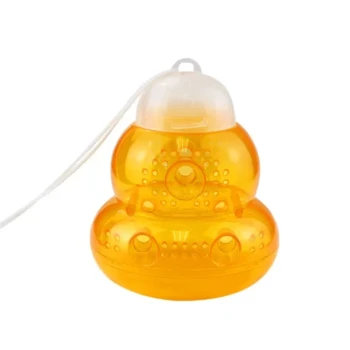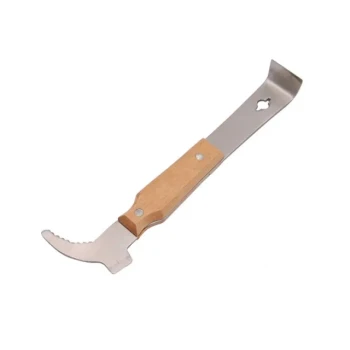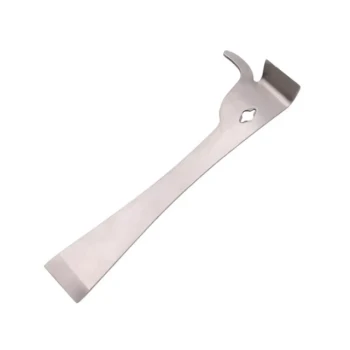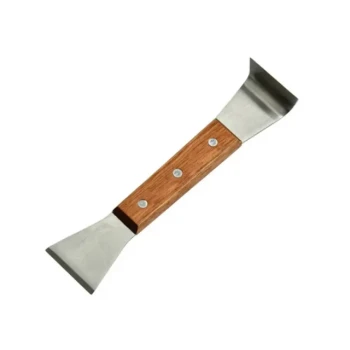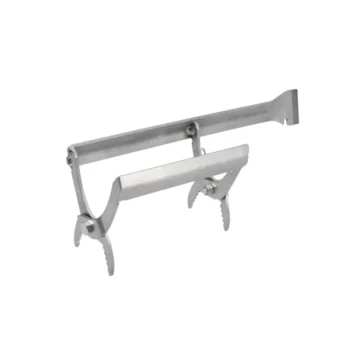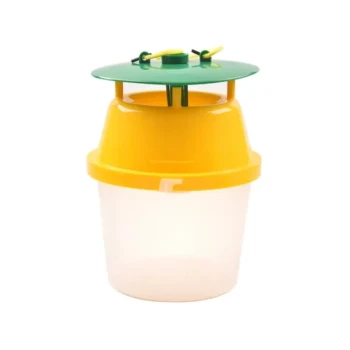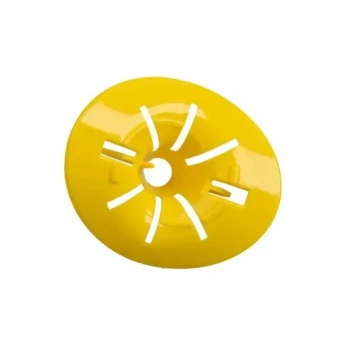The primary characteristics that make the Small Hive Beetle (Aethina tumida) a nuisance are its invasive nature, high mobility, and destructive reproductive cycle. As a pest that can fly, it easily spreads from one hive to another, and its larvae cause catastrophic damage by consuming brood, pollen, and honey, ultimately overwhelming the colony's defenses.
The core problem with hive beetles is not their mere presence, but their ability to turn a beehive's own resources against it. Their lifecycle is designed to exploit the nutrient-rich hive environment, leading to contamination, colony stress, and potential collapse if left unmanaged.
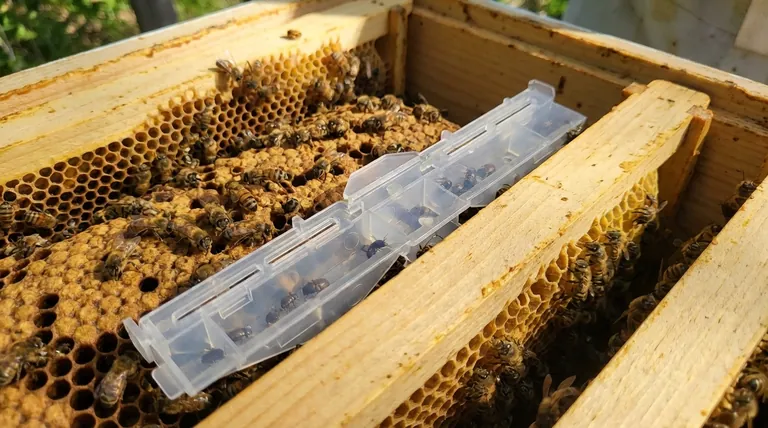
The Beetle's Destructive Lifecycle
To understand the beetle's impact, you must look beyond the adult and focus on its full lifecycle, which is uniquely adapted to thrive inside a beehive.
Invasion and Evasion
Adult hive beetles are strong fliers, capable of traveling several miles to locate new hives. They are attracted by the alarm pheromones of honey bees, meaning a stressed or disturbed colony can inadvertently call in more beetles.
Once inside, the small, dark beetles are adept at hiding in cracks and crevices, evading the guard bees tasked with removing them.
The Larval Stage: The True Damage
The real destruction is caused by the beetle larvae. A single female beetle can lay hundreds or even thousands of eggs in her lifetime, often in protected areas the bees cannot reach.
When these eggs hatch, the larvae burrow through the comb. They consume everything in their path: honey, pollen stores, and most devastatingly, bee eggs and brood. This directly weakens the colony's future workforce.
Contamination and "Slime Out"
As the larvae feed, they defecate in the honey. Their waste products contain a yeast that ferments the honey, causing it to bubble, discolor, and run out of the cells.
This foul-smelling, fermented mess is known as a "slime out." The honey is ruined for both the bees and the beekeeper, and bees will often abandon a hive that has been heavily slimed.
Common Pitfalls in Management
Understanding the beetle is only half the battle. Many beekeepers fall into common traps that allow infestations to spiral out of control.
Ignoring Small Numbers
Seeing a few adult beetles and dismissing them is a critical mistake. A small number of adults can quickly become a massive larval infestation if conditions are right, especially during periods of hive stress or high humidity.
Creating a "Beetle Nursery"
Improperly stored equipment is a major risk. Honey supers waiting for extraction are a perfect breeding ground. If you store frames with honey or pollen in a warm, dark place, you may be unintentionally breeding thousands of beetles that can then re-infest your entire apiary.
Focusing Only on the Hive
Hive beetles are a community problem. Their ability to fly means that a poorly managed apiary nearby can serve as a constant source of new beetles for your hives, no matter how well you manage your own.
How to Apply This to Your Apiary
Your management strategy should be tailored to the health of your hives and your specific goals.
- If your primary focus is prevention: Keep colonies strong and populous, as healthy hives are much better at policing beetles and preventing them from laying eggs.
- If your primary focus is active control: Use a combination of in-hive traps to capture adults and practice strict apiary hygiene, especially when handling and storing honey frames.
- If your primary focus is recovery from infestation: Immediately remove and freeze any slimed frames to kill beetle larvae, reduce the hive entrance to help the bees defend it, and consider combining a weak hive with a stronger one.
Proactive monitoring and management are the keys to keeping this destructive pest from overwhelming the natural defenses of your hives.
Summary Table:
| Characteristic | Why It's a Nuisance |
|---|---|
| High Mobility | Strong fliers can travel miles, easily spreading between hives. |
| Evasion Skills | Adults hide in hive crevices, avoiding guard bees. |
| Destructive Larvae | Larvae consume brood, pollen, and honey, weakening the colony. |
| Rapid Reproduction | A single female can lay thousands of eggs, leading to massive infestations. |
| Honey Contamination | Larval waste ferments honey, causing a "slime out" that ruins harvests. |
Don't let hive beetles destroy your investment. A proactive defense is your best strategy. HONESTBEE supplies commercial apiaries and beekeeping equipment distributors with the wholesale supplies needed for effective beetle management, from in-hive traps to essential tools. Strengthen your hives and protect your honey production. Contact our experts today to discuss a wholesale solution tailored to your operation.
Visual Guide
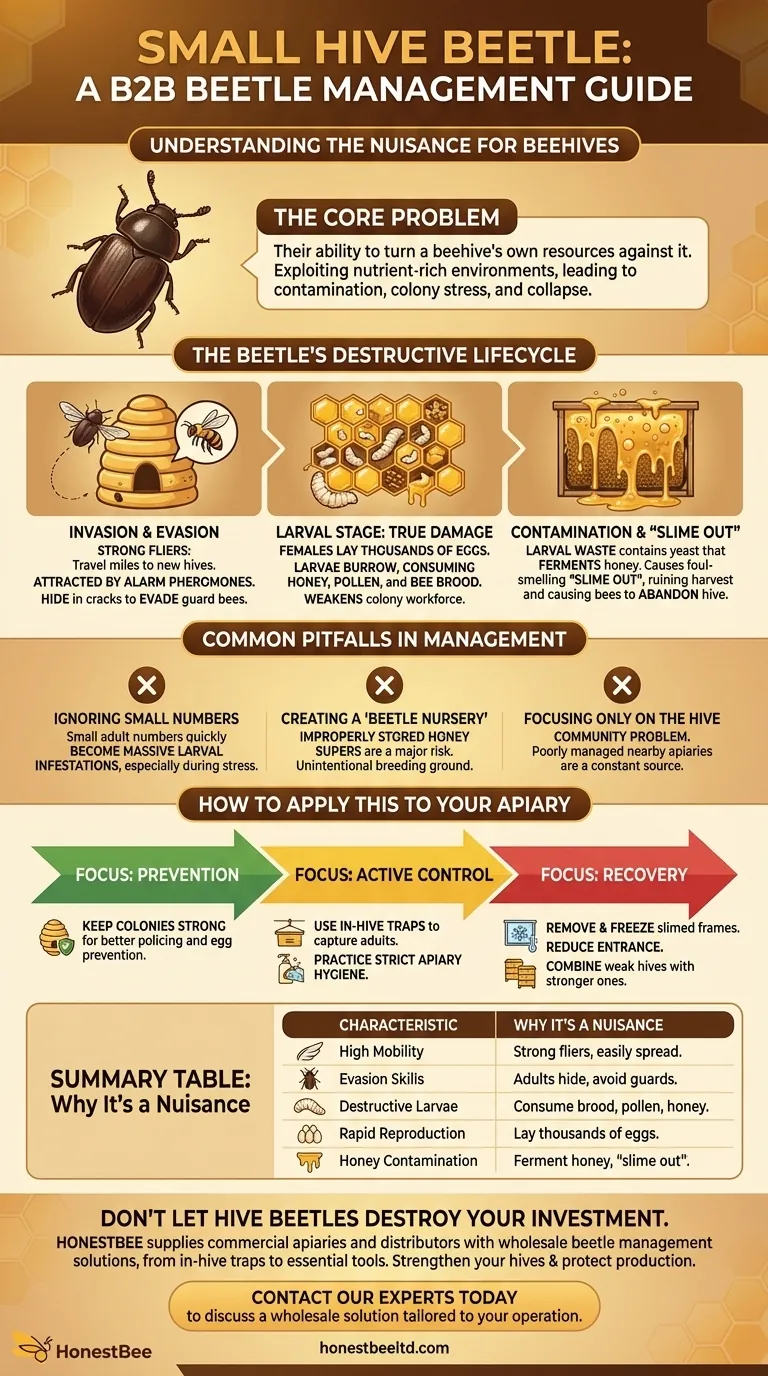
Related Products
- Reusable Clear Small Hive Beetle Traps for Beehives Beetle Trapping Tools
- Black Plastic Beetle Barn Hive Beetle Trap for Beehives
- Removable Washable Hive Beetle Trap Attractants for Small Hive Beetles
- Reusable Aluminium Beetle Trap for Small Hive Beetles Silver Bullet
- Plastic Beetle Blaster Trap Beekeeping Tools and Supplies
People Also Ask
- How do professional-grade environmental hygiene and disinfection tools assist in managing mild SHB infestations?
- What are the technical advantages of using vegetable oil in SHB traps? Ensure Hive Purity and Effective Pest Control
- Why are hive beetle traps important for beekeepers? Protect Your Hive from a Devastating Infestation
- What role do internal beetle traps play in monitoring hive infestations? Precise Diagnostics for Apiary Health
- How should filled beetle traps be handled? Safely Remove and Dispose to Protect Your Hive






